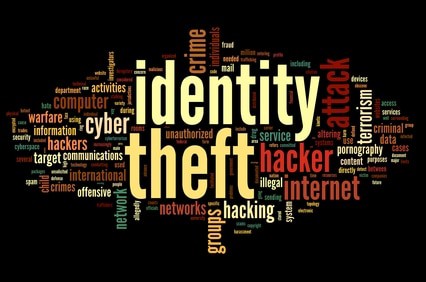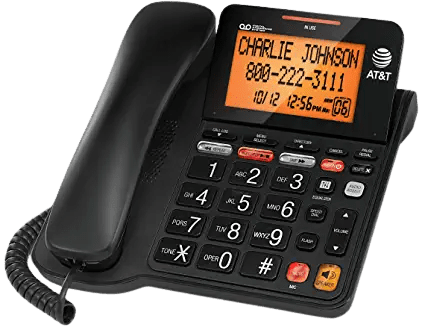The Best Identity Theft Protection Services for Seniors (2025)
According to the Federal Trade Commission (FTC), older adults are among those most susceptible to identity theft, making it essential for them to invest in protective measures. An identity theft protection service can help monitor your personal information, flag potential risks, and, in the event your identity is stolen, help you resolve the issue. Whether it’s your first time investing in identity theft protection or you’re looking to switch companies, these are my top choices for seniors. I chose these services for seniors specifically based on their credit monitoring, identity theft insurance coverage, antivirus software and VPNs, and fraud resolution specialists.
FYI: To learn more about seniors and identity theft, read our guide to senior identity theft.
Top Identity Theft Protection Services for Seniors in 2025
- LifeLock : 24/7 Customer Support
- Identity Guard® : Most Affordable
- Aura : Advanced Digital Protection
Best Identity Theft Protection Services for Seniors
1. LifeLock - 24/7 Customer Support

What We Like Most:
- Accessible customer service team
- Three credit reports included
- Up to $1 million in protection
- 60-day money-back guarantee

Overview
No matter which LifeLock plan I chose, I had 24/7 member support. This gave me peace of mind, as identity theft is one of the most stressful things to go through. While there were plans for individuals as well as two adults, I chose the Standard plan for only $89.99 for the first year (sadly, the price goes up to $124.99 the second year.) With this plan, I got insurance of up to $1 million, which is typical for identity theft insurance. However, LifeLock stood out for giving me up to $25,000 for stolen funds reimbursement, and another maximum of $25,000 for personal expense reimbursement.
But again, whichever plan I choose, I knew that I’d have the benefits of LifeLock’s restoration specialists, who could help me piece my identity back together if my personal information was stolen. And if I was willing to pay a little more ($239.88 for the first year and $339.99 for the second year) I could’ve gotten up to $2 million in coverage total, with credit monitoring for all three bureaus, as well as additional monitoring of crimes in my name, investment accounts, and social media, to name a few. To learn more about this software, check out my rundown of LifeLock for seniors.
Pros
- Accessible customer service team
- Three credit reports included with upper-tier plan
- More than $1 million in identity theft protection
- 60-day money-back guarantee
Cons
- Prices increase after first year
- Lower-tier plan only includes credit monitoring from one bureau
2. Identity Guard® - Most Affordable

What We Like Most:
- Real-time alerts for credit and bank information
- Three-bureau credit monitoring
- Prices start at $7.50 per month
- Social Security and ID monitoring
Overview
Identity Guard offers identity theft protection that starts at $7.50 a month. With this affordable price, I got up to $1 million in identity theft insurance as well as monitoring of my personal information in data breaches, on the dark web, and in high-risk transactions. I could’ve paid more and gotten my social media, credit and debit cards, and 401(k) investment accounts monitored, but if you’re looking to save money, go with the lowest-tier Value package. But note that with this package, my credit report wasn’t monitored with all three bureaus (TransUnion, Equifax, and Experian), and I didn’t get the fraud resolution. While Identity Guard didn’t include antivirus software or a VPN (unlike Aura), it did offer a password manager, which helped me keep track of my passwords across all of my devices.
If budget is top of mind, the Value package could be for you. However, if you’re willing to spend a little more (up to $25 a month on a monthly or annual basis), you can get the comprehensive identity theft protection you’re looking for.
Pros
- Real-time alerts for credit and bank information
- Three-bureau credit monitoring with two upper-tier plans
- Password manager
- Social media, credit, and investment account monitoring available
Cons
- Plans can quickly get expensive
- Lowest-tier plan doesn’t include three-bureau credit monitoring or fraud resolution
Pro Tip: If you want to use the Identity Guard app, you’ll need a smartphone. To learn about our favorites, check out our lists of the best smartphones for seniors and the best iPhones for seniors.
3. Aura - Advanced Digital Protection

What We Like Most:
- Protection for credit, identity, and devices
- VPN and password manager included
- Spam call protection
- Up to $1 million in identity theft insurance

Overview
What’s nice about Aura is that I got the exact same features with each plan, which included up to $1 million in identity theft insurance, fraud resolution, monitoring of my online accounts, my Social Security number, and court records, plus credit monitoring with all three bureaus — which isn’t the case with any of Identity Guard and LifeLock’s plans. Plus, Aura gave me amazing cybersecurity, including antivirus software and a VPN for up to 10 devices, plus a password manager and a 1 GB vault for any sensitive files. That’s the best cyber security of any company on this list, making Aura a comprehensive security solution beyond just identity theft.
That being said, Aura is slightly more costly than LifeLock and Identity Guard, with prices starting at $9.99 a month compared to $7.50 a month. Still, considering the money you can save by not having to buy a VPN, password manager, encrypted vault, and antivirus software, I think this price is more than worth it.
Pros
- All-around protection for online users
- Real-time alerts for suspicious activity
- Ample identity theft insurance coverage
- 24/7 fraud resolution team
Cons
- Higher costs for solo users
- Can only use the password manager on one device
Honorable Mentions
While these identity theft protection services had good qualities, they didn’t make the cut.
- ID Watchdog: ID Watchdog is the identity monitoring service from Equifax, one of the three major credit-reporting bureaus. However, with prices starting at $14.95 a month, it’s nearly twice as expensive as LifeLock and Identity Guard, so I’m not willing to pay double for this association.
- IdentityForce: IdentityForce is even more expensive, with prices starting at $19.90 a month — and that price doesn’t include credit monitoring at all.
- PrivacyGuard: While PrivacyGuard’s prices start at a more reasonable $9.99 a month, I had to pay a minimum of $19.99 a month to get credit monitoring.
- Experian: Experian, another of the credit bureaus, offers credit monitoring for free — but only from its own bureau. And while it has a seven-day trial for three-bureau monitoring and monitoring of other financial and criminal areas, the cost isn’t worth it at $24.99 a month.
- MyIDCare: Lastly, MyIDCare is only available for those who’ve already enrolled under MyIDCare under the Office of Personnel Management’s (OPM’s) cyber incidents. The OPM is part of the federal government and handles two data breaches that occurred in 2015 and exposed the data of over 22 million federal employees. If you were one of them, you would’ve been notified. This service isn’t available to anyone but the victims of these data breaches.
Our Methodology
Here’s how I rated identity theft protection services, all of which I downloaded and tested personally.
- Monthly cost: Costs ranged from $7.50 to $69.99 a month for more comprehensive packages. There are plans for individuals, couples, and families, and you can pay on a monthly or annual basis.
- Credit monitoring: I prefer companies that offer monitoring from all three credit bureaus, although you may be able to save money by choosing a plan with just one bureau.
- ID theft insurance coverage: Typically, identity theft insurance has a maximum limit of $1 million, although some companies, like LifeLock, offer up to $3 million.
- Antivirus software and VPNs: While it’s not technically part of identity theft monitoring, most services include cybersecurity tools like antivirus software and VPNs, and less commonly, password managers.
- Fraud resolution specialists: Finally, the services must have fraud resolution specialists to help you secure your personally identifiable information and gain control of your identity.
What Is an Identity Theft Protection Service?
An identity theft protection service carefully monitors your personal information to check for any possible breaches. They keep an eye on the information most often compromised by identity theft, including your credit reports, Social Security number, name, and public records. By monitoring your information 24/7, they can alert you the moment an issue arises so you can deal with it before it gets further out of hand.
Many services also offer recovery services that help you deal with the aftermath of any identity theft. They have trained counselors on hand to help you figure out your next steps. They can also help you write letters, put a freeze on your credit score, and even deal with creditors. This is particularly helpful for seniors, who might feel overwhelmed and unsure of what to do next if they become victims of identity theft.
How Does Identity Theft Protection Differ From Credit Monitoring?
Credit monitoring is a similar service. However, it only monitors information directly related to your credit score, while identity theft protection monitors a wider range of information and therefore provides more protection. Typically, identity theft protection includes credit monitoring.
Questions to Ask When Choosing an Identity Theft Protection Service
There are several identity theft protection services out there. Here are some questions you can ask to help you find the best one for you.
- Which kinds of identity theft do they monitor? Identity theft might mean someone using your credit or debit card or attempting to use your identity to take out a loan. It can also mean someone trying to make claims on your health insurance or use your Social Security number.
- Do they use fraud alerts? Fraud alerts are requests to lenders and creditors to double check the identity of anyone trying to open an account in your name. They offer an extra layer of protection.
- Which credit reports do they monitor? If a thief commits identity fraud, it might not show up on all of the “big three” (Experian, Equifax, and TransUnion) simultaneously. Choosing a service that monitors all three increases the chance of problems being found and reported quickly.
- How quickly do they let you know if there’s a problem? Time is of the essence when it comes to dealing with identity theft, so choose an agency that lets you know in a timely manner.
- What kind of support do they offer for dealing with the aftermath? One company might be with you every step to help you through the process, while another will simply send you a bunch of forms to fill out. For most seniors, the more support, the better.
- Do they offer any kind of insurance services to help with the financial burden of identity theft? If they do, how does it work? How much can you claim, and what are the restrictions?
- What’s the cancellation policy? How easily can you cancel and how much does it cost?
- Do they have a transparent privacy policy? This is a must — you’ll want to know how they use and share your information.
Taking the time to ask these questions will help you choose a plan that truly protects and helps you. If you can’t get straight answers or if it’s hard to talk to someone over the phone or email about their service, that’s a definite warning bell and you should look elsewhere.
Why Older Adults Are Vulnerable to Identity Theft
Anyone can become a victim of identity theft. However, seniors are particularly vulnerable for several reasons:
- Seniors rely more heavily on the local community, family, friends, and caregivers. Having more people with access to and knowledge about their daily comings and goings leaves them more open to scams.
- Scammers often target seniors precisely because they’re vulnerable.
- Older adults may be less likely than younger people to keep a close eye on their credit score, check online bank accounts, or keep a close watch on their security.
- Seniors are often trusting toward people, which can leave them vulnerable to scammers.
- Scammers know that seniors are more likely to have decent assets set aside than and may target them because of that.
Scammers get information from all kinds of sources: dumpster diving, stealing mail, skimming credit or debit cards in shops, and hacking online accounts. The effects of identity theft on seniors can be devastating. The process of getting help and getting things back to normal can be complicated and upsetting, while the knowledge that someone stole their identity leaves them feeling stressed and vulnerable.
The more steps seniors can take to protect their identities, the better. One way to do that is by signing up for an identity theft protection service.
Bottom Line
With identity theft on the rise, it only makes sense to sign up for an identity theft protection service. I recommend choosing one that covers all three credit bureaus and deals with sorting out any issues on your behalf in order to cut down on stress and paperwork.
No service can prevent all identity fraud, but you can make sure any problems are found and dealt with as quickly as possible, giving you extra peace of mind.




